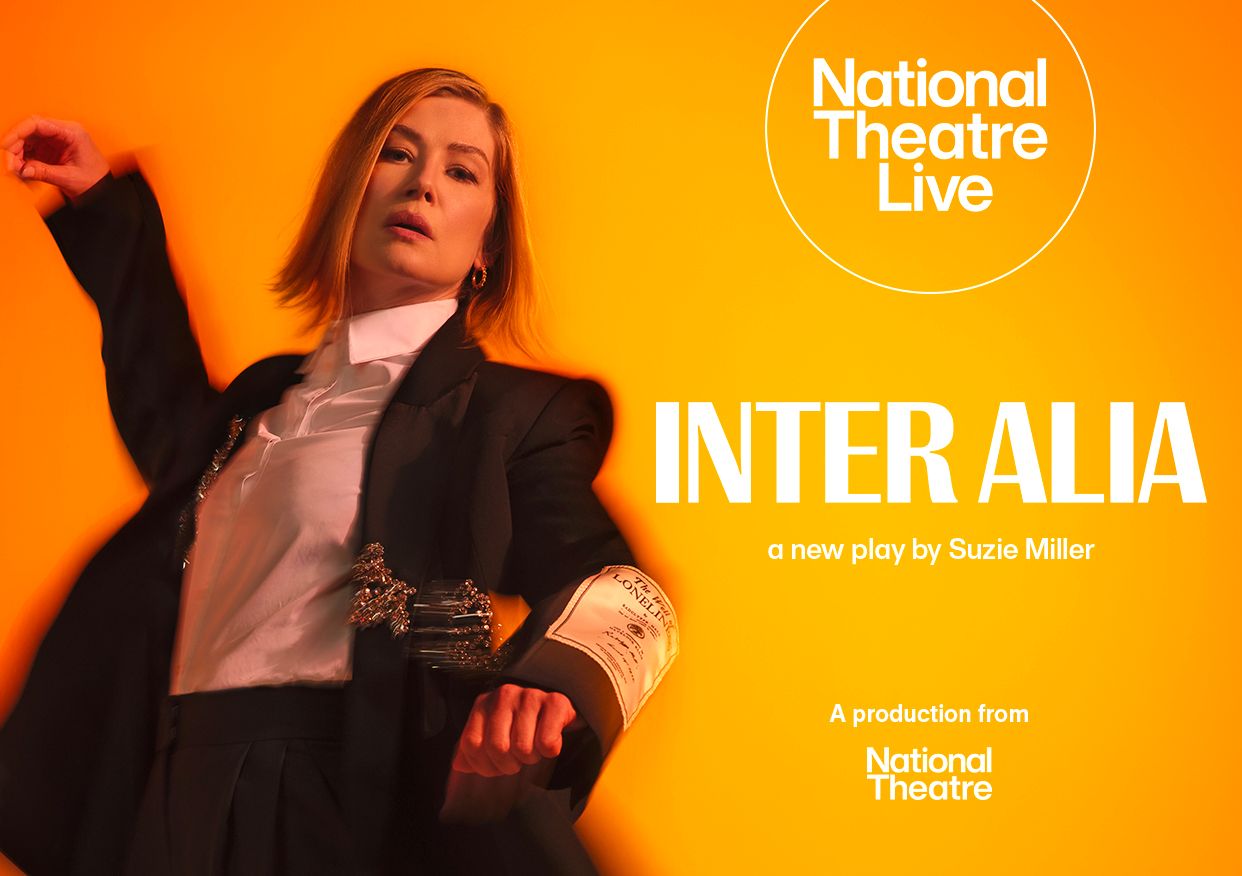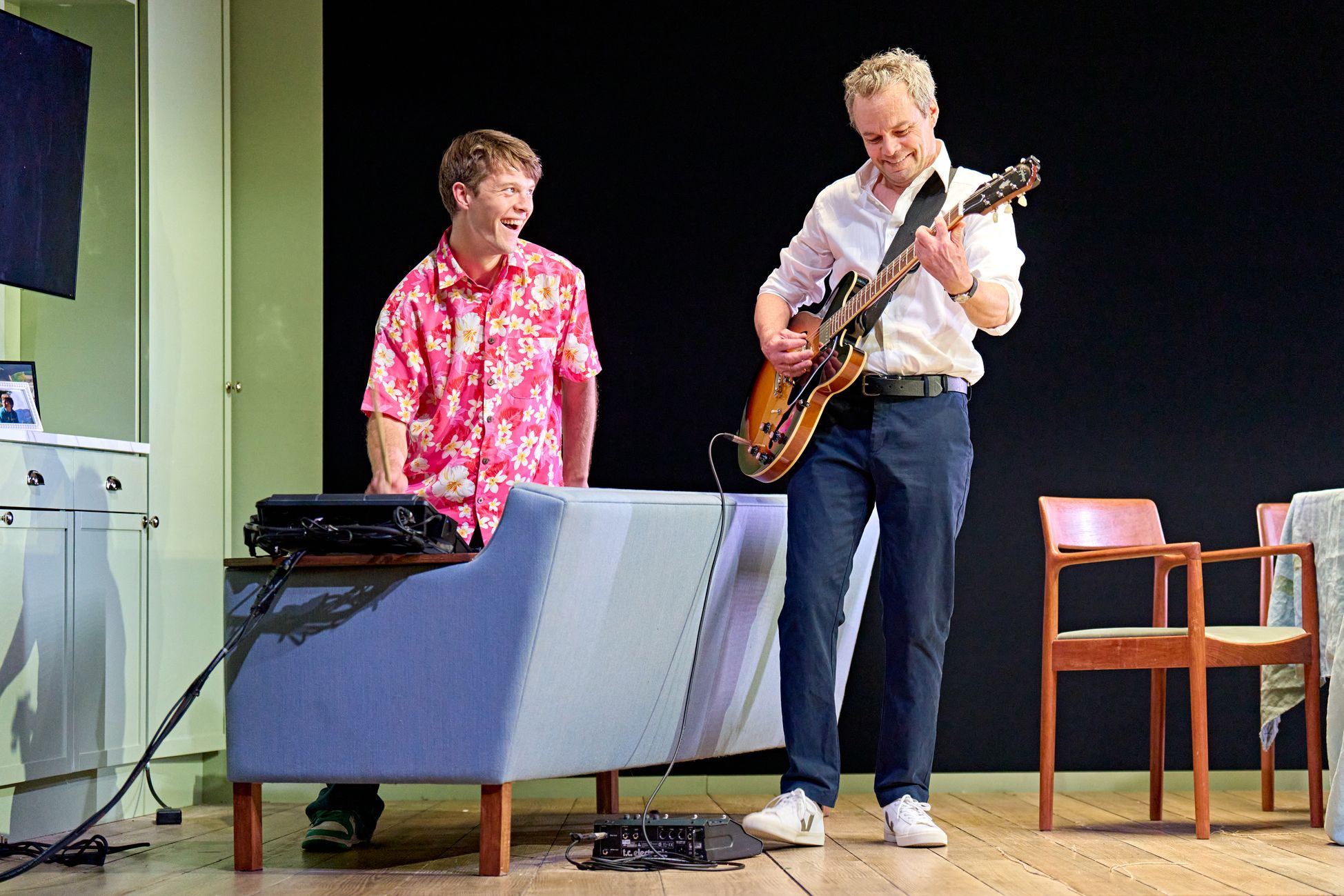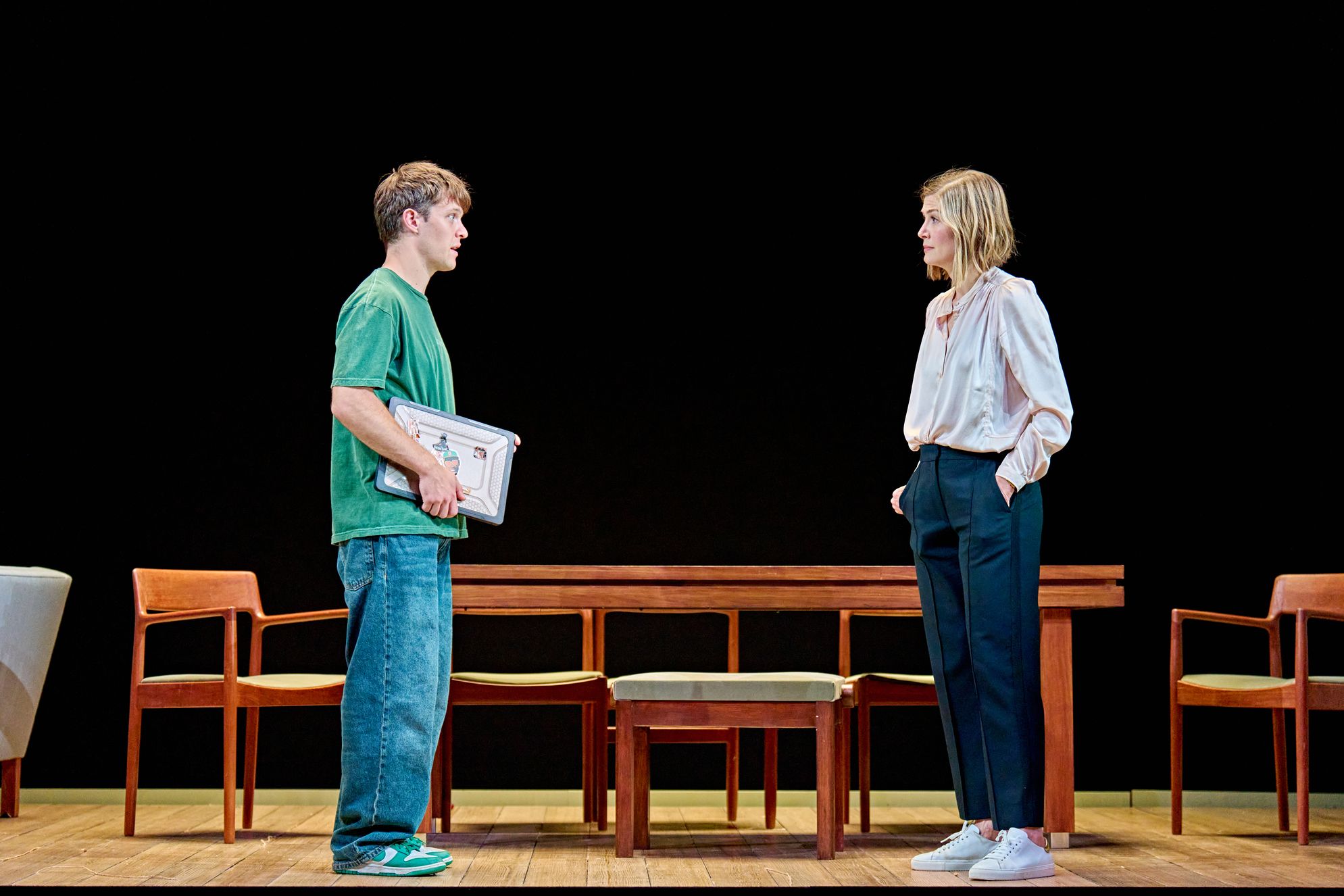Consent, Power, and the Courts - Rosamund Pike Explores It All in Inter Alia
Suzie Miller's new play, filmed live in London for the big screen, brilliantly explores how families and the legal system both struggle with modern consent.
good.film
4 months ago

Share

INTER ALIA is thought-provoking as hell. It takes the fear that any parent of teenagers walks around with, and prods at it like a bruise.
The scene? A top level High Court Judge (played ferociously by Rosamund Pike), renowned for her uncompromising feminist stance on rape cases, finds her worldview torn to shreds when her own son is accused of rape by a female friend.
Inter Alia is the new sold out show from London’s National Theatre and our first deep-dive into a stage play filmed for the big screen. Why now? We’d be lying if we said there wasn’t some cultural pride - the writer is Australian playwright Suzie Miller. She’s the force behind Prima Facie, which sold out around the world in 2022 and won its star Jodie Comer a well-deserved Tony Award.
But there’s a deeper fascination here than just a local connection. The issue of consent is such a nuanced and spiky one. That’s where art like this can help; there’s immense value in those “I didn’t think of it THAT way!” conversations in the movie foyer that tune our minds into a new line of thought.

How does Inter Alia explore being a feminist, while also being a wife, and a Mum?
The way Pike plays Jessica Parks, she’s a bit like a legal rock star. She (literally) rocks the mic in her role as a judge - the stage is like a mashup of her courtroom and a karaoke club. Sounds weird, but it gives the play’s opening scenes massive energy. Pike belts out a breathless, non-stop performance - but what it REALLY conveys well is the endless juggle of her job and her home life. “I swear I spend my entire life doing everything in between the cracks of everyone else's needs!” she rails to us, panting and rushing.
Jessica’s midway through a trial when her son phones her with an “emergency”... to help find his party shirt. This is the first hint of the anxious extremes she’s living under - but is it her own fear of failing as a perfect mother, or something more to do with her son and his background? She rushes from her chambers to home (this is done fantastically well on stage; with a quick flick of lighting, we’re zipped between the courtroom and her kitchen), whipping off her robes and wig… to find her husband moaning about not having red wine for their dinner party.
It’s a huge theme of Inter Alia: balance. The impossible balance. She’s nailing a high-profile career, but also committed to putting her child first. These can mostly co-exist, but what happens when they collide? What parts come undone? And even though she shares the child rearing with her husband, his approach is so different, it’s like they’re at war. So instead of feeling supported, it feels like the job is HARDER (this is often a reason for divorce, by the way - many women feel it’s actually easier to single parent than to co-parent with a resistant spouse). But can a busy mother, no matter how much of a badass feminist that she is, do it all?
It’s interesting how there’s a push-pull in this “main parent” idea. Like when, in a flashback, their son Harry breaks his arm at school, and Jessica rushes to the hospital. But why was SHE the one to go, not her husband Michael? His answer is a meek one: "I just thought he'd want his Mum." It’s infuriating (she was in the middle of a deposition at the time!) but Jessica is self-aware enough to admit, "I'm torn between wanting to rage against this, and the compliment of being a good mother." She’s one of the UK’s most respected judges, but she still yearns for society’s ‘gold star’ on her cardboard ‘World’s Best Mum’ chart.
She wants to be a good wife too, with all the inner conflict that brings. There’s hints across the dialogue that her barrister husband is a touch jealous of his wife becoming a judge before he did. That she ‘eggshells’ his feelings because of it. And that, secretly, he might truly believe that women are only being elevated to the bench in the interests of gender equity. “Not in YOUR case, of course!” he maintains, but Jess has seeds of doubt. She loves her husband, but his lumpy views are, well - the views of a man born in the 70s, raised by a man born in the 40s. It shows how feminist attitudes are still fighting against a HUGE generational tide.

How does Inter Alia explore assault within the legal system?
Compared to her home life, Jessica’s career in the courtroom is startlingly black & white. She presides over a lot of rape cases, telling us with a note of pride, “It’s here that I can affect change.” Early on, she explains how her mind works behind the bench: she views her job as protecting the witness (in other words, the victim) - to protect her from more trauma.
Jess pushes back, HARD, against the (almost always male) defence barristers, who can easily be thought of as stand-ins for the patriarchy. “I always make it clear that there will be NO victim blaming in this court!” she hollers, and then throws in for us as a cheeky wink, “He's a barrister I worked alongside once, and now he must obey me.” It’s a pretty delicious moment.
So her stance is crystal clear: “support the sisterhood.” But the crux of Inter Alia, the core irony, is what happens when her home and work collide. When Harry is accused of rape the day after his party, how can Jessica unquestionably “believe the victim” then? “Don't you believe me Mum?” Harry begs her messily. “Of course I do!”, because what else can a mother say? She’s thrown into a tailspin of self-blame - “I TRIED TO RAISE A FEMINIST SON!”
Suzie Miller takes Inter Alia into fascinating territory by laying out the murkiness of proof when it comes to consent and assault in the courts. Because what's moral, and what's legal, are two very different things, and it's only what's legal that counts in court. "We both know how difficult it is to secure a conviction in a rape case!” her husband rallies, trying to find the silver lining.
He’s right. Even if Harry WAS guilty, he probably won’t be FOUND guilty: legally, it’s nearly impossible to PROVE that someone intentionally raped someone else if they deny it. But Jessica is incredibly conflicted by this. She’s fought for victims her whole career.
She’s disgusted to find herself deploying the same tricks she shoots down in her courtroom. The kind defence lawyers use to cast doubt on the (usually female) victim’s account. Jessica clings to the fact that memories CAN be faulty - especially when someone’s traumatised. And she knows convictions are vanishingly rare. And though she recognises how problematic that is, the thought that her son is unlikely to end up in jail brings her a grim sense of relief.

What does the play have to say about raising boys?
Here’s where the real emotional meat of Inter Alia starts to sizzle. Suzie Miller weaves four key motherhood flashbacks into the story. There’s the hospital visit we mentioned, and a scene where Harry is much younger and wanders off at a playground while she's on the phone, distracted with a case (another reminder of the career vs. family juggle).
But the sharper ones are a scene where Jessica wrestles with the sick feeling of explaining to her young son - without scaring him - that no-one else is allowed to touch his body. And later, when Harry’s 12, believing she’s caught him watching porn on his laptop and deciding to have “the talk”. She might stammer and struggle, but in both scenes Jessica is TRYING to do it right.
As online resource Teach Us Consent advises to parents who suddenly find themselves in that same awkward boat, “Don’t freak out — this is the perfect moment to open up a conversation, understand how they came across it, and ask them what they thought about it. Be sure to emphasise that porn isn’t made to depict reality or be educational.” And that’s exactly what Jess does. She’s a mother who’s deeply invested in protecting her son from abuse AND from becoming an abuser. She’s making the effort - but the question Inter Alia poses is can women really reach into and influence that world, no matter how hard they try?
As her son stands accused, Jessica is consumed by a sense of failure. She turns to her husband, realising that perhaps she can’t do it all - she can’t reach their teenage boy on her own. She needed Michael to teach him how to be a good man: “I want to know if you sat him down and had a talk with him about respecting women!” And she’s sick with the realisation that that never happened. Michael’s defence is that he’s like “every other man” in their 40s and 50s, “we don't know what to say!” And there’s another, deeper fear for these men: that maybe they barrelled through layers of consent in their younger days, too. What if someone from their own past has a long-buried accusation to make?

What’s the takeaway from Inter Alia?
What indeed! There’s not a moment of Inter Alia that’s anything less than fierce and fantastic entertainment. It’s no wonder it sold out instantly in London: Rosamund Pike grabs the red-hot material by the scruff of the neck and furiously tears it to shreds (she's incredibly impressive).
Thematically, it’s honestly tough to squeeze all the layers of this potent play into one, single nutshell. Woven into the rapid-fire dialogue are comments on #MeToo, social media pressure, the “optics” of gender, and the crushing realisation that justice so often slips away within the rigid confines of the legal system. Oh, and how as a woman, you literally can’t do it all.
But Inter Alia is a piece of art that's driven from start to finish by sheer impact. Like the Emmy winning Adolescence, this is a story that unseals the pressure cooker of the manosphere to let us in. It’s no secret that boys have instant access to harmful or demeaning porn, and yet their fathers (and father figures) aren’t talking with them about how to contextualise it. There’s a proven link between porn exposure and retro attitudes to consent: research found that teens who have seen pornography are more likely to agree with the statement “girls may say no at first, but then can be persuaded to have sex” than those who haven’t. It’s scary.
We won’t spoil the ending, but if we were to choose one takeaway to emphasise from Inter Alia, it’d be Suzie Miller's own call to action: TALK TO YOUR BOYS. Even with the most incredible women leading the issue, we need men. We need them to process their own histories and silences around consent. And we need them to sit down with their sons, take a deep breath, and have those conversations about what consent looks like in 2025. If you’re not sure where to start, we recommend checking out the resources from our friends at Teach Us Consent.

